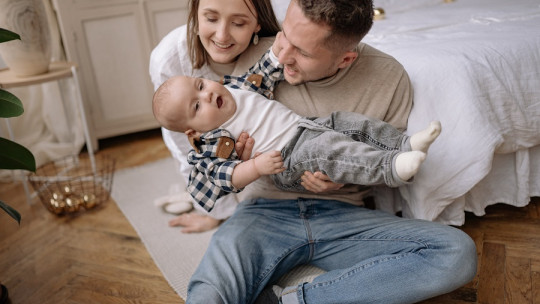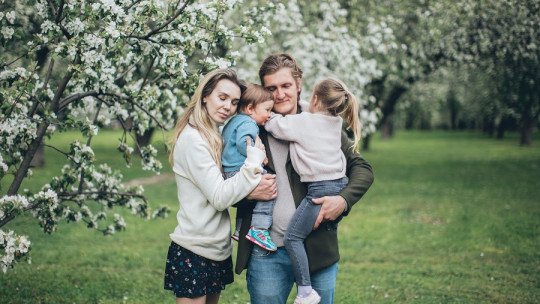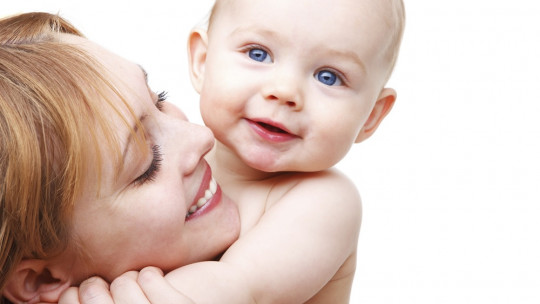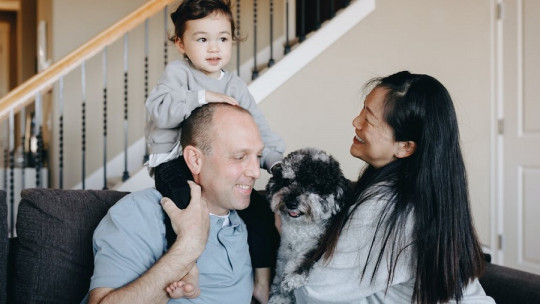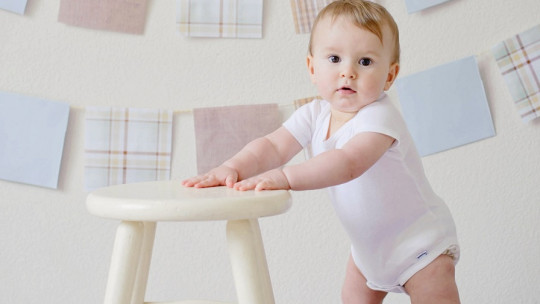
A new integrative look at the changes that occur in couples after the first months of the baby’s arrival home A vision of the society that parents and grandparents have to live in. The interrelation between them and the demands that today’s life requires and that function as demands that are difficult to respond to. A way of thinking about what happens to us internally, beyond what has already been said. These are some of the ideas that are briefly developed in this article.
The psychological impact of the baby’s arrival
We are no longer who we were and that is difficult to accept, our anxieties, work pressures, trying to do things well, according to others they say, are some of the issues that today’s parents must face without prejudice, blame or stereotypical models. The invitation is to find your own model, the one that suits that family and its uniqueness
Much has been said about the happiness that the arrival of a baby produces, also about the psychological and physical modifications of the postpartum period, the change in the maternal body and the new reconnection of both parents with it. A body crossed by psychological motherhood and biology.
Generational differences
But What happens with the transformation in the couple, especially in the most prolific generation of these times, those who today are between thirty and a little older. The generation that decided to face the family project being closer to forty years of age. A generation that traveled, had fun, studied and worked without worrying about anything other than themselves. A generation that rightfully decided to enjoy life, something that was also encouraged by their own parents, who knew the good things of living those experiences but who had to wait for their children to grow up to be able to fulfill that desire, so they marked the era.
Today The contradiction arises between these two generations that coexist at the same time Of course, enjoying life without obligations is fine, but like everything, it has its consequences, and today they face a reality that they had not ventured. A reality for which they have no model, precisely because of the speed at which paradigm changes are generated.
What happens to these parents who have been together for some time, who know their tastes and have set up a dynamic that works, at least until today?
Much has changed since the times of those who today are or will be grandparents, where although the changes described in the puerperium were visible, society took for granted that the internal transitional change in the couple was obvious. Today the older generation does not understand how their grandchildren are baby travelers or can accompany their parents to work.

A global change
Everything changes and you have to adapt to the times, and that’s how the world evolves. But The arrival of the baby is not only postpartum changes, but a life change Whatever the idea that each person has about parenting and parenting, the greatest change that is observed and underappreciated is the change in life, which does not refer only to the care of the infant or the difficulties in time to sleep or return to work.
It is about the change of identity of the couple, a deeper change, where these young people stop being such, in the sense of being identical to who they were, travelers or those who accepted all the invitations of their friends. Today they are surprised, beginning to question who will go to the meeting. All three, just one? Or how they are going to face those outings that not long ago were common to them and for which they did not need any type of preparation.
Today what changes is that couple to become a family, where both will make the decisions or will have to fight for their place with the baby (and there will be more than one boy or girl in the house). The question is whether they will be able to rearrange themselves as parents and a baby, or one will be the father or mother of two
Many times you hear the mother taking this place and then complaining about doing so. This is caused by her not having had the appropriate conversation about how they will handle boundaries, going out, walks with the family, or where the baby will sleep. This results in psychological pain that can be solved with the clarification of those anonymous and pending issues.
Everything begins to get tangled, you see problems where there are none or problems that are different from those that exist. Listening the difficulty of being able to resume sexual relations or the lack of desire for one or both parents facing the arrival of the baby, but in reality it is about all these problems that are diluted beneath the surface, as if it were a cliché where if there is a postpartum period the problems are the known ones.
Focusing on the particular
Reducing human feelings, especially in times of crisis and much more in which identity is involved, is a reductionism that is not a good thing to fall into. We are much more than simple statistics and each couple will live it as they want or as they can. But looking a little below the surface, with an integrative and less stereotyped view, can give us a quicker and more satisfactory solution to these problems, so that they become a lesson and a useful tool for the rearrangement of the couple, as there will be. so many others. That is growth and well-being when it comes to mental health.
I think it is convenient to leave aside the massive to take care of each person, of each individual in their uniqueness and that the word gives a sense of exclusive, because that is what we are, unique beings with different realities, even though the stage of life we go through seems the same.
In no way am I saying it will be easy, since the change involved in how we saw ourselves, the transformation that implies how we want to see ourselves as parents or how we will encourage ourselves to see ourselves in this new stage, certainly takes work. Adjustment of roles, clarification of norms, reconsideration of points of view and priorities agreed upon jointly between both parents, exercising the essentials of map-parenting, which is carrying out together the upbringing and the physical and spiritual psychic construction of that waiting human. the best act of love on his part, which could well be one of them, teaching him to manage changes, an irreplaceable asset, given by the hand of his parents, an asset that will undoubtedly be valued in the future.

